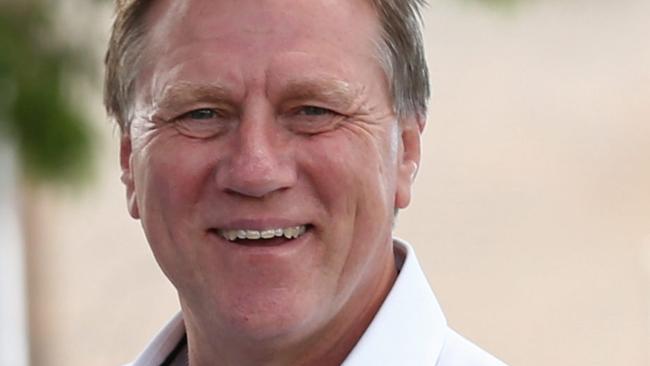‘Aged-care blame game masks inaction’
The federal government has relied on a blame game as cover for inaction, a key witness has told the Aged Care Royal Commission.

The federal government has relied on a blame game between aged-care providers and unions as cover for its own inaction on vital aged-care workforce reforms, a key witness has told the Aged Care Royal Commission.
Professor John Pollaers, chairman of the government’s own Aged Care Workforce Strategy Taskforce review, also said the government had offered “no detailed response at all” to his requests for a status update on the taskforce’s reforms proposed almost 18 months ago.
With the commission this week focusing on issues surrounding the aged-care workforce, Professor Pollaers said the government had used upheaval in the aged-care sector as an excuse to stall on workforce reform.
“The way government has positioned itself over the last few years is that (workforce) can be an industry issue and they can leave industry to deal with the unions, then use the fragmentation as a reason to say ‘without one voice we don’t know what your asking’,” he told the commission on Monday. He was also critical about progress on the five strategic actions the taskforce proposed for government in its final report — funding and remuneration; links between aged care and primary care; a social change campaign; improving training and recruitment for government aged-care workers; and an aged-care research centre.
“There has been no detailed response at all to each of those recommendations, but for a pre-election commitment to fund the aged-care centre for growth and translational research, which I haven’t seen any progress on,” Professor Pollaers said.
“With all the others I wrote to the minister asking for a point by point response … and did not receive a response.”
Former aged-care minister Ken Wyatt commissioned Professor Pollaers’ taskforce in late 2017 to develop a strategy for growing and sustaining the workforce providing aged-care services and support for older people. After the May federal election Richard Colbeck took over the portfolio.
Counsel assisting the commission, Peter Rozen QC, acknowledged the importance of workforce issues in aged care. He said of the 296 witnesses who had given evidence to date, 85 per cent had raised workforce concerns. “From the evidence … a picture is emerging of an aged-care sector struggling to attract, train, retain and sustain its workforce,” he said.
He praised those working in the sector for their diligence and devotion to older Australians.
“They are looking after the most intimate needs. They do it for little money. They’re often inadequately supported. At times they risk their own health and safety. They do all this with love and dedication. They deserve appropriate remuneration, appropriate training and support and safe workplaces,” Mr Rozen said.
The commission also heard from professor Kathy Eagar, director of the Australian Health Services Research Institute, who gave evidence about the paperwork required to secure government funding for nursing home residents, cutting the time available for qualified caregivers, often nurses, to spend with residents.
“Homes would need to spend more time on paperwork to be paid for a resident than a hospital needs to complete to be paid for a heart-lung transplant,” Professor Eagar said.



